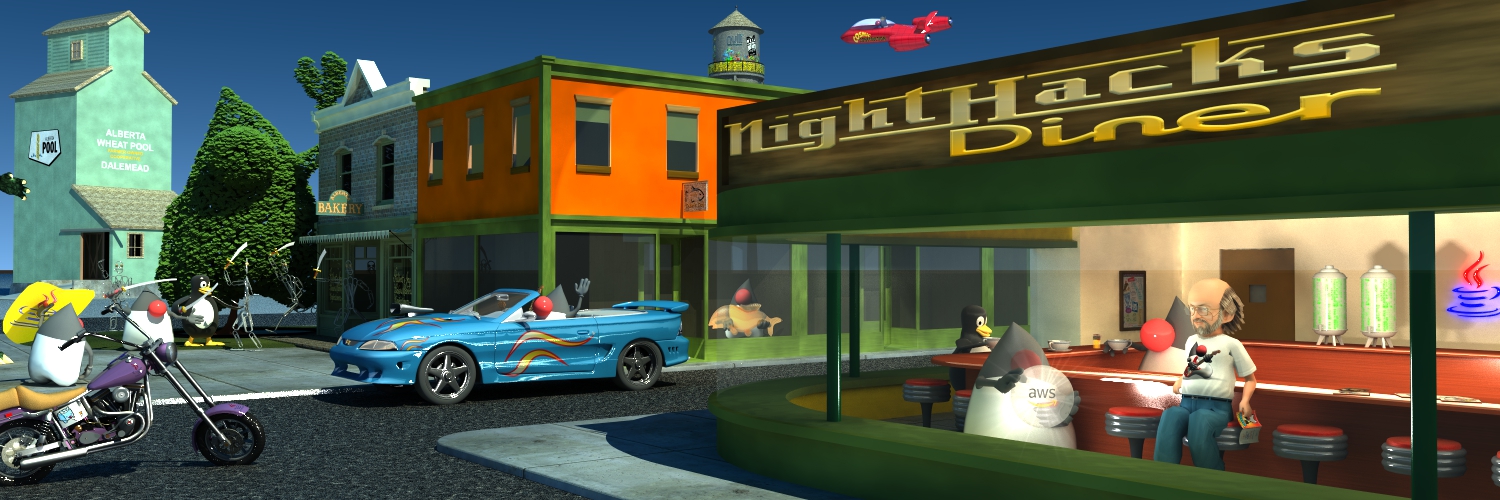Quite the firestorm
 The last couple of days have been quite an entertaining firestorm
of press and blog-o-sphere commentary. Lots of questions were
brought up that give me a bottomless supply of blog topics. I hope
I have the common sense to not write on most of them :-)
The last couple of days have been quite an entertaining firestorm
of press and blog-o-sphere commentary. Lots of questions were
brought up that give me a bottomless supply of blog topics. I hope
I have the common sense to not write on most of them :-)
But there are some topics I feel I should briefly say something about:
- In Sun's early history, we didn't think much of patents. While there's a kernel of good sense in the reasoning for patents, the system itself has gotten goofy. Sun didn't file many patents initially. But then we got sued by IBM for violating the "RISC patent" - a patent that essentially said "if you make something simpler, it'll go faster". Seemed like a blindingly obvious notion that shouldn't have been patentable, but we got sued, and lost. The penalty was huge. Nearly put us out of business. We survived, but to help protect us from future suits we went on a patenting binge. Even though we had a basic distaste for patents, the game is what it is, and patents are essential in modern corporations, if only as a defensive measure. There was even an unofficial competition to see who could get the goofiest patent through the system. My entry wasn't nearly the goofiest.
-
Sun got a lot of heat for not going full open source early on
(and there's a lot of disagreement over what "full open source"
would mean... GPL? Apache?). But freedom is a funny concept.
It's often a function of point of view: freedom for one could
restrict the freedom of another. The freedom we were most
concerned about was the freedom of software developers to run
their applications on whatever OS or hardware they wanted. In
opposition to that, the platform providers wanted the freedom
to make their platforms as sticky as possible. Microsoft was
the poster child for stickiness: they signed a contract saying
that they'd support interoperability. Shortly thereafter they
broke that promise by making it the case that if Java programs
were developed on Windows, they wouldn't run anywhere else, so
we took them to court and won. We were pretty careful about
enforcing interoperability on desktops and servers. As an
interesting aside, that commitment to interoperability is why
Apple dislikes Java. Having OS X apps run on Linux or Windows
doesn't make them happy. Apple wants to add your
technological distinctiveness to their own.
When it came to cellphones and JavaME, we weren't as able and successful at achieving interoperability. There were a lot of factors, but it all added up to pain for developers and a chilling of the software market. When Google came to us with their thoughts on cellphones, one of their core principles was making the platform free to handset providers. They had very weak notions of interoperability, which, given our history, we strongly objected to. Android has pretty much played out the way that we feared: there is enough fragmentation among Android handsets to significantly restrict the freedom of software developers.
- Money was, of course, also an issue between Sun and Google. We wanted some compensation for the large amount we would be spending on engineering. Google did have a financial model that benefited themselves (that they weren't about to share). They were partly planning on revenue from advertising, but mostly they wanted to disrupt Apple's trajectory, and Apple's expected entry into advertising. If mobile devices take over as the computing platform for consumers, then Google's advertising channel, and the heart of its revenue, gets gutted. It doesn't take much of a crystal ball to see where Apple is going, and it's not a pretty picture for Google or anyone else.
- Don't interpret any of my comments as support for Oracle's suit. There are no guiltless parties with white hats in this little drama. This skirmish isn't much about patents or principles or programming languages. The suit is far more about ego, money and power.
- It's a sad comment on the morality of large modern software companies that Microsoft, while I don't think they've gotten any better since Sun sued them, probably has the high ground.
| August 15, 2010 |
